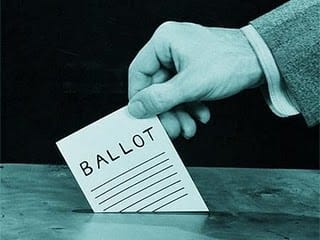Assessing the compatibility of key California ballot measures


Ballot propositions 19, 25, and 26 present California voters with some noticeably contradictory elements. Prop 19 would permit marijuana to be regulated and taxed as a legal drug, similar to alcohol. The legalization element, however, is not the problematic one – rather, the regulation and taxation elements are likely to clash with the anti-prohibition coalition supporting the initiative.
The reason for this is the existence of Propositions 25 and 26, which would respectively permit the California legislature to pass a budget by simple majority vote while simultaneously requiring that all taxation votes meet a 2/3 majority. Even on their own, these two measures will put the legislature in a very precarious position, with the spending portion of the budget subject to simple majority, while revenue-raising is still left difficult. This result alone would likely produce further legislative gridlock.
But then throw in Proposition 19 and this fight will likely go nuclear. One of the oft-cited arguments for legalizing marijuana on the progressive side of the aisle is that legalizing it will open up new sources of revenue for the state, as marijuana is a highly profitable cash crop, and even a small tax on it would probably bring in a significant sum of revenue.
However, since no existing marijuana tax currently exists on California’s books, the creation of such a thing would first have to pass a 2/3 majority vote in California’s legislature if Proposition 26 is passed. And given that anti-tax sentiment in the legislature has historically frustrated this sort of effort, that would in effect make marijuana perhaps the only untaxed drug in California, which, while it would produce a boom in the marijuana industry, would also give purveyors of tobacco and alcohol incentives to seek similar tax breaks for their good.
Thus, the issue of marijuana legalization, while it would satisfy the demands of its more libertarian-minded supporters, would likely end in disappointment for progressives who would like to see the drug taxed and regulated, especially given that regulation is costly, and without revenue, unlikely to be popular and/or feasible.
At no other time, then, is a critical outlook more necessary in critically evaluating the various initiatives currently in play on California’s ballot. Tax relief and marijuana legalization both have compelling arguments to back them up, but for California voters, the issue in this case may be that they have to pick one or the other.


